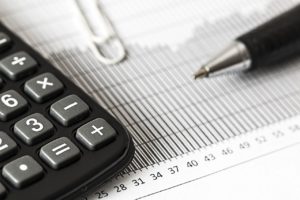Tax Planning for Small Business
by Guest Columnist Michael Kelly
1. Special Depreciation
When planning to purchase new or used property and equipment, small businesses should be aware of Code Sec. 179 expensing, which allows businesses to deduct the entire cost of certain property (up to $500,000 in 2016 and $510,000 in 2017) in the year it is purchased. To qualify, the business must have taxable income (cannot elect Sec. 179 expense with a tax loss) and the property must have a useful life of less than 39 years. Certain qualified real property (buildings or improvements) may also qualify.
 Bonus Depreciation is another form of special depreciation. It allows businesses to immediately deduct 50% of new property (used property does not qualify), however bonus depreciation may be used even if your business has a tax loss.
Bonus Depreciation is another form of special depreciation. It allows businesses to immediately deduct 50% of new property (used property does not qualify), however bonus depreciation may be used even if your business has a tax loss.
Using these special depreciation methods helps a business lower its taxable income immediately, which means expedited tax savings that can be reinvested into the business.
2. Business Use of Personal Vehicle
Do you use a personal vehicle for business? An often-overlooked business deduction, an owner (or employee) may be reimbursed at the standard mileage rate issued annually by the IRS, which is $0.57 and $0.54 per mile in 2016 and 2017, respectively. Keep a log of your business miles (date, total miles, and purpose of trip) and reimburse weekly, monthly, or at the end of the year.
3. Maintain Accurate Internal Records
If you paid a vendor or contractor more than $600 for providing a service you will be required to issue them a Form 1099-MISC by January 31, 2017. Have your vendors and contractors fill out a Form W-9 as soon as possible, which will provide you with the information necessary to prepare the forms.
4. Succession Planning
What will happen to your business when you decide to retire? What if you or one of your partners die unexpectedly? According to a survey by CNBC and the Financial Planning Association more than 75% of small business owners intend to sell their business to fund their retirements, but less than a third of them have a formal succession plan in place. Whether you plan on passing your business to a family member, selling to a current partner or a third-party, a good succession plan will help identify an owner’s financial needs in retirement and outline the steps to get them there.
5. Year-End Tax Planning
“What will my tax liability become tax-time? “How can I reduce my taxable income before year-end?” “My annual net income is $100,000, so why do I only have $5,000 in the bank?” These are common questions that can be answered through year-end tax planning. Year-end tax planning is highly recommended for any small business. Think of it as a tool to maximize profits and cash flow while minimizing taxes. Tax planning can provide peace of mind that the business is being financially managed as well as possible.
 Michael Kelly
Michael Kelly
Michael Kelly is a Certified Public Accountant with Dawson, Smith, Purvis & Bassett in Portland. He is a graduate of St Joseph’s College and has been helping small businesses owners with tax planning since 2005. Mike’s experience includes audits and reviews of financial statements for various businesses and not-for-profit entities in addition to corporate and individual taxation. He also specializes in internal control analysis consulting. You can reach Mike at (207) 874-0355 ext. 329 or by email at mkelly@dspbcpa.com.





